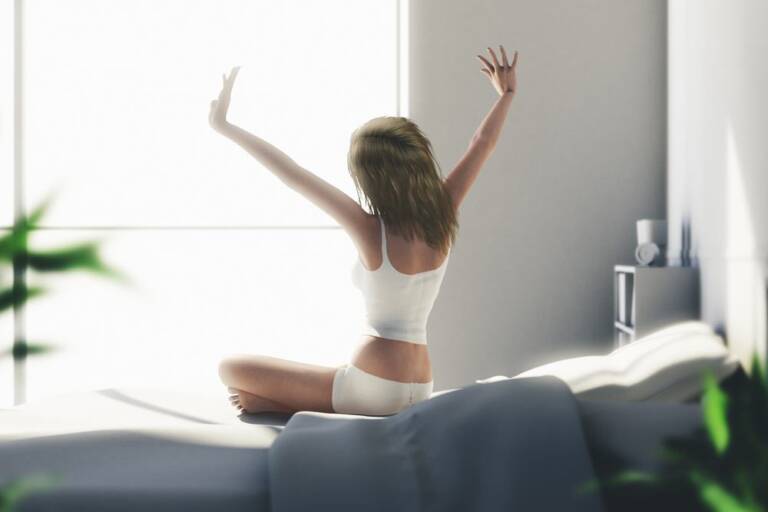

Did you know that both natural and artificial light has the ability to help our body clock to synchronize and to stimulate our brain so that it produces wakefulness and sleep hormones at optimal times?
There are many light therapy and body clock systems on the market today and the one you choose is down to personal choice. But how does light therapy work and is it really possible for light to help you unwind and wake at the right time?
What Is Sleep Exactly?
This is a good question and one that most of us never ponder. If we’re lucky, we simply close our eyes and we’re off to sleep in a matter of minutes. However, it’s important to understand sleep so that you can understand how light therapy can benefit you.
Sleep is a reversible state where we are no longer aware of our environment or anything going on around us. Most people sleep between six and nine hours every night and experience a number of different sleep cycles. Each of these lasts between one and two hours. These cycles are known as the Non-Rapid Eye Movement (NREM) sleep and the Rapid Eye Movement (REM) sleep. It is believed that REM sleep is when we are most likely to dream.
It’s All About Rhythm
The timing, quality and length of our sleep is dependent on a number of factors. The body clock isn’t just a myth, it is a finely tuned system that drives daily sleep patterns and tracks how long we are awake. These patterns are known as circadian rhythms and they differ from person to person. Your body clock also comes equipped with a sleep homeostat; this is similar to an egg timer and tracks just how long you have been awake. Certain sets of brain cells are also responsible for determining when we are in a wakeful state, while others induce relaxation and eventually sleep.
Problems With Sleep
Most people experience problems with sleep at some point in their lives. Whether it’s temporary or intermittent sleep problems down to jet lag or a newborn baby or you are experiencing full blown insomnia, lack of sleep can have some troublesome consequences. Fatigue during the daytime caused by too little sleep or poor quality sleep can affect your mood, your reflexes, your ability to think and can make it extremely hard to function at all.
How Can Light Therapy Help?
Light is able to reset the body clock and synchronize it to a 24 hour day. For example, if you have just flown to a completely new time zone, you can use light to reset your body clock and help you to adjust to your new environment quickly. Light at the right time can help you to adjust to local time without the need to set alarms or spend days adjusting.


